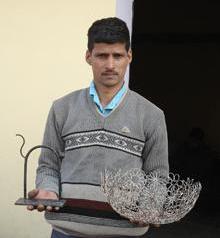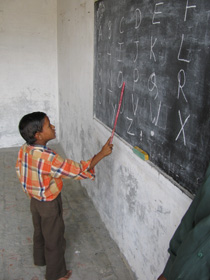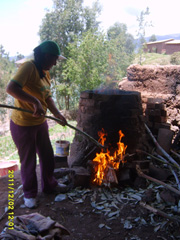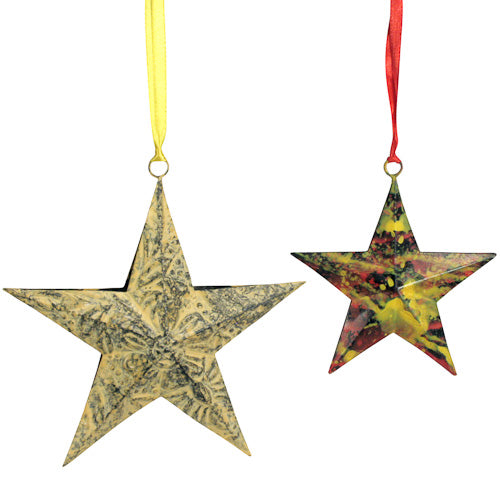OWP
Upcyled Metal Star Ornament w/ 5 Points
Upcyled Metal Star Ornament w/ 5 Points
Couldn't load pickup availability
Share
A trendy and innovative way to decorate your tree, these 3-dimensional stars will add an eco-friendly spirit to your holiday. These handcrafted stars are made from recycled metal and then their surfaces are painted with a sponging technique to add a play of color.
Handmade using recycled materials by artisans in India at Mohd Israil's workshop, one of many fair trade workshops sponsored by Noah’s Ark. Noah’s Ark is an NGO founded in 1986 by Samuel Masih, one of the leaders in the movement to pay fair wages to artisans in India.
- Small Yellow & Red - 4-1/4” high x 4-1/4” wide x 3/4" deep
- Large Yellow - 6-1/4” high x 6-1/4” wide x 1 1/2" deep
- Comes with a ribbon for hanging
Handmade in India and fair trade imported.
 This item was handmade in India in a workshop sponsored by Noah’s Ark, an NGO that offers funding for raw materials, machines and workshop repairs to 100 artisan groups across India. In exchange for assistance, workshops must prove that all employees are paid fair wages for their products and work in safe and clean conditions. Noah's Ark also offers free classes in capacity building to its network of 600 artisans, a rigorous quality control check, and runs education and water sanitation projects to benefit the artisans’ children and the rest of the community. The company has established 20 new workshops in the past 15 years, and all employees are paid 10-15% above the local rate.
This item was handmade in India in a workshop sponsored by Noah’s Ark, an NGO that offers funding for raw materials, machines and workshop repairs to 100 artisan groups across India. In exchange for assistance, workshops must prove that all employees are paid fair wages for their products and work in safe and clean conditions. Noah's Ark also offers free classes in capacity building to its network of 600 artisans, a rigorous quality control check, and runs education and water sanitation projects to benefit the artisans’ children and the rest of the community. The company has established 20 new workshops in the past 15 years, and all employees are paid 10-15% above the local rate.
Noah’s Ark was founded by Mr. Samuel Masih in 1986 back before anyone was familiar with the concept of “Fair Trade.” A businessman from Moradabad, India, Masih observed his other business associates were taking a personal commission from the local metalworking artisans, on top of paying them very low wages for their work. This led to a distrustful and exploitative work environment, and inspired Masih to create a more collaborative environment based on trust and mutual respect.
After two difficult years, Samuel explained his objectives to Mrs. Sullivan of Sullivan Florist in the United  States, who immediately placed an order for US$ 70,000. This led to collaborations with other international companies, including Tear Fund, Artisanat-SEL, Goed Werk, TEAM and Oxfam Australia. Today, the company produces a US $1.5 million in exports and funds Noah's handicrafts and Welfare society, an artisan association created in 2000 to promote artisan welfare, capacity building, childhood education and social work.
States, who immediately placed an order for US$ 70,000. This led to collaborations with other international companies, including Tear Fund, Artisanat-SEL, Goed Werk, TEAM and Oxfam Australia. Today, the company produces a US $1.5 million in exports and funds Noah's handicrafts and Welfare society, an artisan association created in 2000 to promote artisan welfare, capacity building, childhood education and social work.
About the Artisans
About the Artisans
Ceramica Quinua, an artisan cooperative known for its social and environmental responsibility, offers steady work to six workshops and 36 families in Ayachucho, Peru. Ceramica Quinua is dedicated to decreasing the use of firewood to reduce deforestation, and as such, works primarily with clay, which is extracted from the land in a controlled manner to avoid erosion.
The artisans shape and fire their pieces in home-based workshops during their nine-hour workday. Children often sit in on the workshops during their free time in so they may learn the trade that's been passed from ancestor to ancestor. The organization also takes pride in offering health care for its craftsmen, and for sharing its environmental knowledge and conservation techniques with students at public schools.
The Quinua district is characterized by the eucalyptus and alder-scented atmosphere of its mountain and forest landscapes. The name Quinua is derived from the Qenwal plant, said to be comparable in beauty only to the Quinuin women. The unique flora and fauna that inhabit the territory are fast becoming a major tourist attraction. Unfortunately, deforestation and pollution from paint chemicals are threatening their existence.

Materials
Materials
Dimensions
Dimensions
Care information
Care information

Subscribe to our emails
Subscribe to our mailing list for insider news, product launches, and more.

